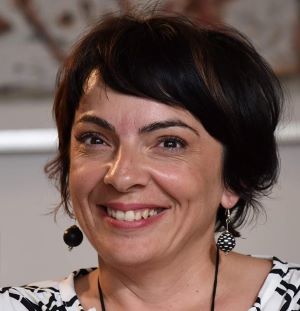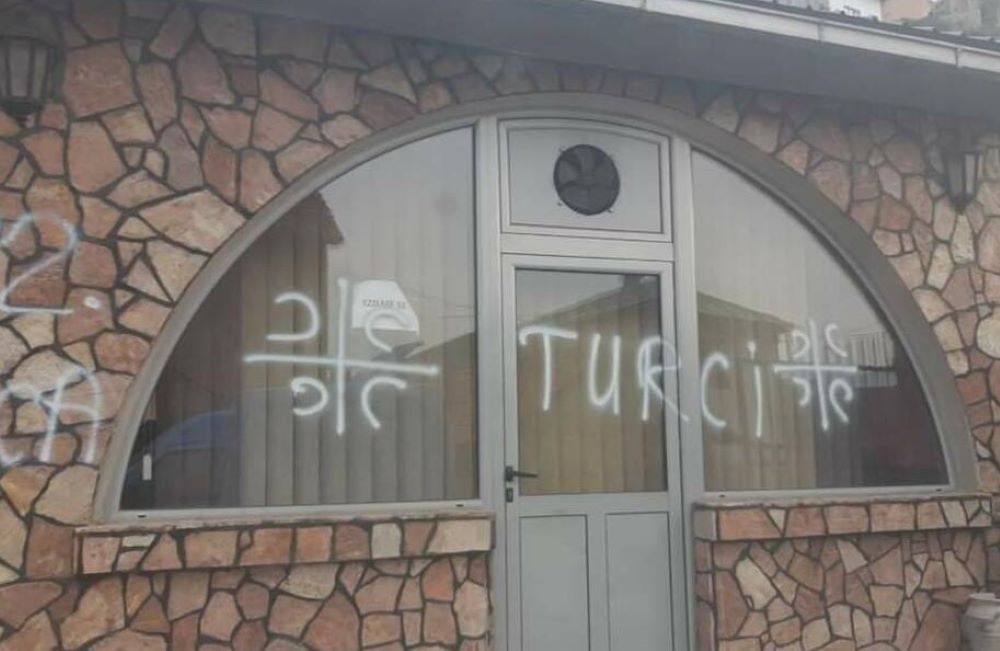Few people think about the fact that war crimes in Montenegro have not been resolved, there is no dealing with the past, our institutions have been captured, media freedoms are insufficient, gender equality is barely alive, discrimination against vulnerable groups is still present, and the rule of law is an unattainable dream.

Milena Perovic
Peace, tolerance, reconciliation. Montenegrin politicians’ favourite words. Both former and present politicians, it’s all the same, as our society sinks deeper into divisions. When you listen to them, you’d think that Europe, especially now being concerned about the strengthening of the radical right, might need to ask to be admitted to us. It doesn’t occur to anyone that while they’ve been talk, we have in fact been waiting for the green light to join the EU for decades. The warnings remain the same: war crimes have not been resolved, there is no dealing with the past, our institutions have been captured, media freedoms are insufficient, gender equality is barely alive, discrimination against vulnerable groups is still present, and the rule of law is an unattainable dream.
But the words are still revealing. Regardless of the well-prepared and occasion-appropriate political speeches as well as an awareness of what Europe is asking of them, the essence cannot be hidden; sometimes it reveals itself in one word. Like in politicians’ reactions to the recent incident in Cetinje, when yet unknown young men stoned a bus of children from Nikšić, who had previously sung the song Veseli se srpski rode (Rejoice, Serb peoples) in front of the Cetinje Monastery. Before throwing stones, the young men told them to sing those songs in Serbia.
Instead of condemning the incident in a way that condemns hate speech and the spread of national intolerance, reactions to the event have further fuelled national tensions and divisions, abusing the role children yet again, and demonstrating the depth of the problem in which Montenegrin society finds itself.
Marko Kovacevic, mayor of Niksic, a representative of the Democratic Front, which is considered the local right, stated that Cetinje was “fascized and contaminated”, and called on the authorities to find out who stoned the bus filled with “our children”. Otherwise, he said, “the people of Niksic will do it themselves.” The mayor of Cetinje, Nikola Đurašković, from the ranks of the Social Democratic Party, which is considered a civic party, retaliated. His vocabulary wasn’t suited to what he should be representing. “I sincerely urge you not to use children for your nationalist goals… provoking Cetinje and its people” he said, adding that he “wishes for the ugly provocations some have felt and experienced to stay in the past”, and quoted Peter I – “a friend can walk to Cetinje in three hours, and an enemy can’t ever”. All in all: our children, our enemies and other people’s fascists. Nobody recognizes their own.
It is also interesting that the ranks of civic-profiled parties and civil organizations conclude that the children who visited the Cetinje monastery were “abused”. Are they? In accordance with the Constitution and domestic law, a child has the right to freely express their opinion and enjoy their own freedom of religion. The law requires that a 12-year-old child must be ask whether they agree to be included in religious instruction. The fact that the children were in front of the Cetinje Monastery in itself is not enough to conclude that they were abused.
According to research by the Center for Civic Education, there is a growing trend in Montenegro, as well as in the region, of young people increasingly turning to religion. In parallel, there are studies that show that young people in Montenegro do not have the appropriate degree of tolerance for others. Most cannot imagine friendship with a Roma or a homosexual; it is a little better with other minorities. Research conducted by the Forum Mne on the resistance of young people to extreme and radical behaviors showed that the surveyed Orthodox from certain Montenegrin backgrounds are not able to identify any kind of extreme behavior among members of their denomination.
Much like their political representatives.
Milena Perović is a journalist, director of the weekly newspaper “Monitor”



Leave A Comment